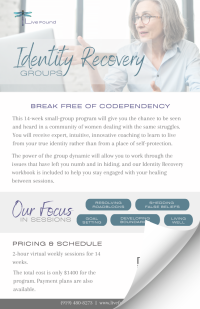We’ve all had moments where we jump to conclusions, assume the worst, or convince ourselves of something that might not be entirely true. If that sounds familiar, you’ve likely experienced cognitive distortions—and they may be quietly undermining your relationships.
Let’s unpack what they are, how to spot them, and how to start shifting these patterns.
Understanding Cognitive Distortions
Cognitive distortions are biased, often irrational thought patterns that warp your perception of reality. They’re like mental filters—usually formed early in life—that impact the way you interpret situations.
These distorted ways of thinking can increase anxiety, damage self-esteem, and trigger unnecessary conflict with others. They’re automatic and usually go unnoticed… until they start causing real harm.
Examples of Cognitive Distortions in Relationships
Here are a few ways these distortions show up, especially in close relationships:
- All-or-Nothing Thinking
This is black-and-white thinking with no middle ground.
“If they didn’t text me back right away, they must not care about me.”
Reality: People can care deeply and still get distracted or busy. - Mind Reading
Assuming you know what someone else is thinking—and it’s rarely positive.
“He didn’t compliment my outfit. He must think I look terrible.”
Truth: We don’t actually have access to other people’s thoughts unless they share them. - Catastrophizing
Jumping straight to the worst-case scenario.
“She seemed off today… I bet she’s planning to break up with me.”
This kind of thinking fuels fear and insecurity, making us react to imagined threats rather than real ones. - Labeling
Turning behavior into identity.
“I messed up that conversation—I’m such a failure.”
Instead of seeing a mistake as an event, you turn it into a personal flaw.
Impact of Cognitive Distortions on Relationships
When these distortions go unchecked, they can create a minefield of misunderstandings and emotional reactivity.
You might:
• Constantly misinterpret your partner’s behavior
• Feel rejected or unloved over minor things
• Become overly critical—or withdraw emotionally
• Struggle to feel safe or trusting, even when things are okay
Why? Because you’re not responding to what’s actually happening—you’re reacting to what you think is happening. That gap between perception and reality creates friction, and over time, it erodes emotional connection.
Recognizing Cognitive Distortions
The first step to change is awareness. Start asking yourself:
• “Is this thought 100% true?”
• “Do I have actual evidence for this, or am I guessing?”
• “Am I interpreting this through past hurt or fear?”
If your thoughts feel extreme, one-sided, or fear-driven, it’s a good sign a distortion might be at play.
You might also notice:
• You frequently second-guess yourself or others
• Your reactions feel bigger than the situation
• You replay conversations trying to figure out what went wrong
Strategies to Shift Thought Patterns
The good news? These patterns are learned—which means they can be unlearned.
- Slow Down and Observe
Start noticing the thought before reacting. Even saying to yourself,
“This might be a distortion”
can create a little distance between you and the belief. - Challenge the Thought
Ask:
• What’s the evidence for and against this?
• Is there a more balanced way to look at this?
• What would I say to a friend thinking this? - Practice Self-Compassion
Many distortions stem from past hurt or self-protection. Be gentle with yourself as you unlearn them. - Work with a Therapist
Unpacking and rewiring these patterns takes time—and support helps. A therapist can guide you in identifying your unique distortions and shifting your inner dialogue to something more grounded, compassionate, and effective.
Take the Next Step
If cognitive distortions are creating chaos in your relationships, it’s time to get support.
✨ I offer a free 15-minute consultation to explore what’s going on, where these patterns might be coming from, and how we can begin shifting them—together. Give me a call, leave me your name and number and I’ll call you back as soon as I’m able! 912.495.8737
Your thoughts don’t have to run the show. You can learn a new way of thinking—and relating. Now might be the perfect time to schedule a session with me to talk it out!




